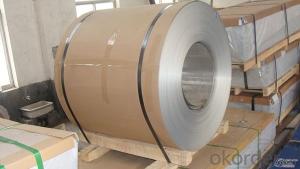Mill Finish Aluminum Coil for Metal Wall 1XXX 3XXX 5XXX
- Loading Port:
- Shanghai
- Payment Terms:
- TT OR LC
- Min Order Qty:
- 5 m.t.
- Supply Capability:
- 1000 m.t./month
OKorder Service Pledge
OKorder Financial Service
You Might Also Like
Item specifice
Mill Finish Aluminum Coil for Metal Wall 1XXX 3XXX 5XXX
1.Structure of Mill Finish Aluminum Coil for Metal Wall 1XXX 3XXX 5XXX
Aluminum Sheets are strengthened and cut from raw materials with different alloys, such as AA5005, AA5052, etc. They are easy for processing in different shapes, good in intensity and can be quickly installed. Aluminium Sheets for Energy Saving Curtain Walls are good in energy saving, weather resistance, fire resistance, easy for maintenance and with many colors.
Aluminium Sheets for Energy Saving Curtain Walls are widely used in construction of metal walls, metal ceilings, car decoration, advertizing panels, etc.
2.Main Features of Mill Finish Aluminum Coil for Metal Wall 1XXX 3XXX 5XXX
•High intensity
•Easy to be processed and shaped
•Weather resistance
•Anti-pollution & environment protection
3. Mill Finish Aluminum Coil for Metal Wall 1XXX 3XXX 5XXX Images
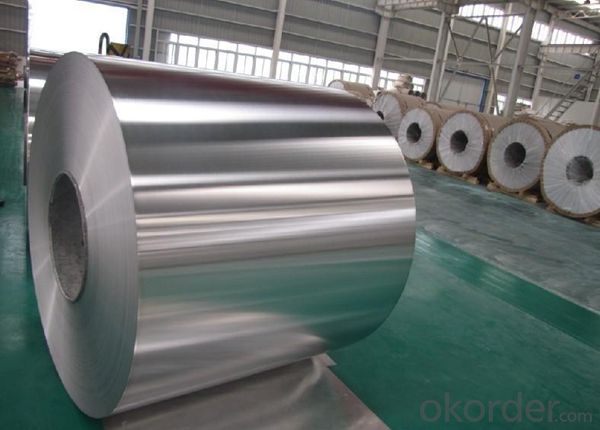
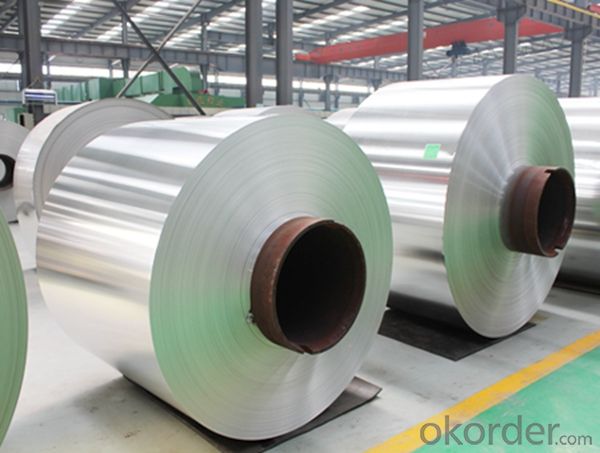
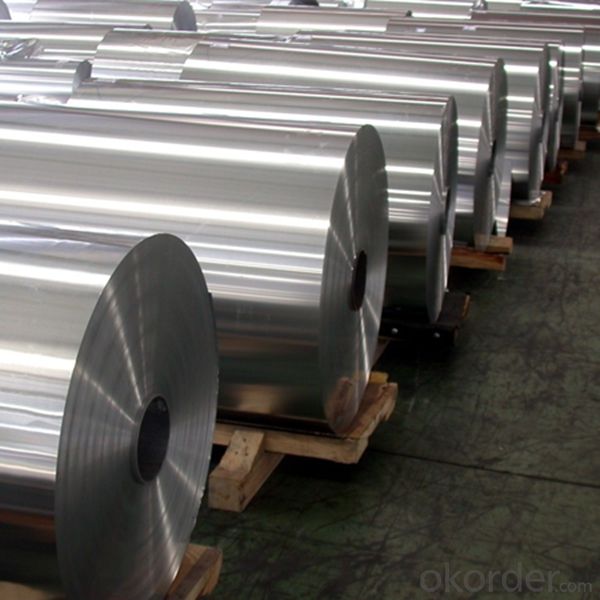
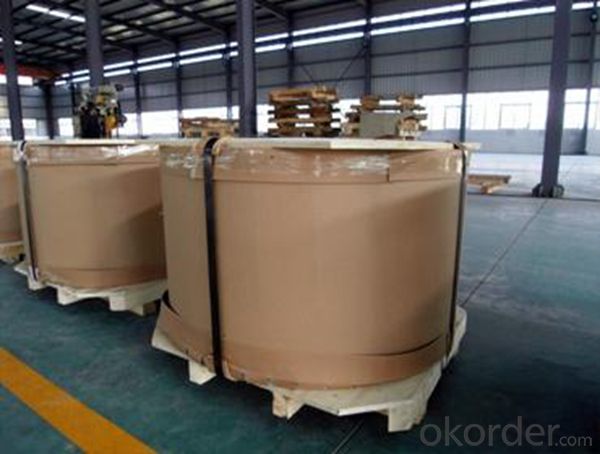
4.Specification of Mill Finish Aluminum Coil for Metal Wall 1XXX 3XXX 5XXX
Alloy Number | AA5XXX 1XXX 3XXX |
Temper | H12, H14, H16, H18, H22, H24, H26, H32, HO, F |
Thickness | 0.1mm – 500mm |
Width | 10mm- 2200mm |
Standard | GB/T3880-2006, ASTM, ISO, EU standard |
5.FAQ of Mill Finish Aluminum Coil for Metal Wall 1XXX 3XXX 5XXX
A.What about inspections to guarantee quality?
For each order for Aluminum Sheets with Mill Finished Surface AA5XXX, we will arrange strict inspection for raw materials, inspection during production and inspection for finished goods.
With requirement of customers, we also can arrange the third party inspection.
B.What about delivery?
We will put order for Aluminum Sheets with Mill Finished Surface AA5XXX in production schedule after order gets confirmed against copy of TT or L/C. Normally it takes about one month for production. Exact shipment schedule is different based on different sizes and quantity.
C.What is the MOQ?
5 tons for each size.
D. Where have you exported aluminium sheets?
We have exported aluminum sheets to many countries. Main markets include South East Asia, Middle East, North America, South America, etc.
- Q:What are the different coil handling options available for aluminum coils?
- Aluminum coils have several options for handling, depending on the user's preferences and specific requirements. Some commonly used options include: 1. Coil Cradles: These are horizontal racks or frames that provide support and stability for aluminum coils during storage or transportation. They come in various sizes and designs to accommodate different coil dimensions. 2. Coil Cars: These mobile platforms have lifting mechanisms to easily move aluminum coils between different processing stations. They can be manually operated or automated, depending on the desired level of automation. 3. Coil Turnstiles: These rotating devices hold multiple coils vertically, allowing for easy access to individual coils without heavy lifting or rearranging. They are ideal for high-volume production environments that require quick coil changeovers. 4. Coil Upenders: Specialized equipment used to rotate or flip aluminum coils to change their orientation. They are useful for loading or unloading coils in a vertical position or for specific processes that require a particular coil orientation. 5. Coil Lifters: Specifically designed lifting devices for aluminum coils. They have adjustable arms or clamps to securely grip the coil for safe and efficient lifting. Available in manual, semi-automatic, and fully automated models. 6. Coil Tippers: Used to tilt or incline aluminum coils for various purposes such as coil feeding or inspection. They can be operated manually or powered by hydraulic or pneumatic systems. 7. Coil Stackers: Used to neatly stack and store aluminum coils vertically. They have adjustable arms or forks to accommodate different coil sizes, optimizing storage space and ensuring easy access when needed. These examples showcase the variety of coil handling options available for aluminum coils. Each option has its own advantages and suitability for different applications or industries. Careful consideration of specific requirements and constraints is essential when selecting the most appropriate coil handling solution.
- Q:How long do aluminum coils last?
- The lifespan of aluminum coils can vary depending on various factors such as usage, maintenance, and environmental conditions. However, on average, well-maintained aluminum coils can last anywhere between 15 to 20 years.
- Q:Can aluminum coils be used in electrical busbars?
- Indeed, electrical busbars can utilize aluminum coils. Due to its high electrical conductivity, affordability, and lightweight nature, aluminum is widely employed as a busbar material. Aluminum coils can effortlessly be molded into different configurations and dimensions, tailored to meet specific busbar criteria. Furthermore, aluminum possesses commendable thermal conductivity, facilitating efficient dissipation of heat in applications involving high currents. Nevertheless, it is crucial to take into account the current carrying capacity, mechanical strength, and corrosion resistance of aluminum coils when opting for them in busbar applications.
- Q:What is the tensile strength of an average aluminum coil?
- The tensile strength of an average aluminum coil can vary depending on the specific alloy and manufacturing process used. However, commonly used aluminum alloys typically have a tensile strength ranging from 100 to 300 megapascals (MPa).
- Q:Are aluminum coils resistant to saltwater corrosion?
- Generally, aluminum coils exhibit resistance to corrosion caused by saltwater. Aluminum is widely recognized for its exceptional corrosion resistance, particularly in marine settings where exposure to saltwater is common. The naturally occurring oxide layer on the surface of aluminum acts as a shield, effectively preventing direct contact between the aluminum and the corrosive saltwater. This oxide layer serves as a protective barrier against saltwater corrosion. Moreover, various coating techniques, such as anodizing or painting, can be employed to further enhance the resistance of aluminum coils against saltwater corrosion. Nevertheless, it is worth noting that prolonged or continuous exposure to saltwater can gradually deteriorate the protective oxide layer and potentially result in corrosion, albeit at a slow pace. To prolong the lifespan and optimize the performance of aluminum coils in saltwater environments, regular maintenance and appropriate care are essential.
- Q:What are the benefits of using aluminum coils?
- There are several benefits of using aluminum coils. Firstly, aluminum is a lightweight material, making it easier to handle and install. Secondly, aluminum is highly resistant to corrosion, ensuring the durability and longevity of the coils. Additionally, aluminum coils have excellent heat transfer properties, allowing for efficient cooling or heating. Lastly, aluminum is a sustainable and recyclable material, making it an environmentally friendly choice.
- Q:Who knows Xingtai aluminum shutter door how much is one square meter?
- East of the ox horn, that is, the South and the junction, then ask yourself, will not be a big difference
- Q:What are the different coil handling methods for aluminum coils?
- To ensure the safe and efficient handling and storage of valuable aluminum coils, there are various methods available. Here are several options: 1. Manual Handling: This approach involves the physical lifting and movement of aluminum coils using manual labor. It necessitates proper training and the use of personal protective equipment to prevent injuries. Manual handling is suitable when dealing with smaller coils or when specialized equipment is unavailable. 2. Forklift Handling: Forklifts are commonly utilized for the handling of aluminum coils. They come equipped with specially designed coil lifters or C-hooks, which securely lift and transport the coils. Forklifts offer a more efficient and quicker method for handling larger and heavier coils. 3. Coil Lifters: Coil lifters are specialized lifting devices specifically designed for aluminum coil handling. They utilize a combination of clamps and hooks to securely grip and transport the coils. Coil lifters are often used alongside cranes or forklifts. 4. C-Hooks: C-hooks are another commonly employed method for handling aluminum coils. These hooks are attached to cranes or other lifting equipment and are designed to securely cradle the coil. C-hooks facilitate easy and controlled movement of the coil and are suitable for coils of various sizes. 5. Coil Tippers: Coil tippers are utilized to tilt the coils horizontally or vertically, making loading or unloading easier. This method reduces the risk of coil damage during handling and enhances efficiency by enabling coils to be easily placed on or removed from racks or pallets. 6. Coil Carriers: Coil carriers refer to specialized trailers or trucks specifically designed for transporting aluminum coils. They feature built-in coil cradles or beds that securely hold the coils during transportation. These carriers often have adjustable supports to accommodate different coil sizes and prevent shifting during transit. Ultimately, the choice of coil handling method depends on factors such as coil size, weight, and specific requirements. It is crucial to select the appropriate handling method to ensure worker safety, prevent coil damage, and maintain the quality of the aluminum.
- Q:i have a project that requires me to know how safeway aluminum foil is made. i researched it on the internet, and also called safeway for it. they never gave me an answer. same for the diamond aluminum foil.please help!!!!i just need to know where they make it, how thick it is, and/or information about the ingots (such as size)and also temp. of heating room
- they start with a huge block of aluminum, then run that forth and back between giant steel cylinders until it is a relatively thin and very long sheet of metal. Then this sheet is run trough a series of these drums until it is foil of the required thickness. Then they cut the wide foil in strips of the right width and package it for sale. Hope this helps.
- Q:What are the different thicknesses available for aluminum coils?
- The thicknesses available for aluminum coils can vary, but common options typically range from 0.015 inches to 0.25 inches.
1. Manufacturer Overview |
|
|---|---|
| Location | |
| Year Established | |
| Annual Output Value | |
| Main Markets | |
| Company Certifications | |
2. Manufacturer Certificates |
|
|---|---|
| a) Certification Name | |
| Range | |
| Reference | |
| Validity Period | |
3. Manufacturer Capability |
|
|---|---|
| a)Trade Capacity | |
| Nearest Port | |
| Export Percentage | |
| No.of Employees in Trade Department | |
| Language Spoken: | |
| b)Factory Information | |
| Factory Size: | |
| No. of Production Lines | |
| Contract Manufacturing | |
| Product Price Range | |
Send your message to us
Mill Finish Aluminum Coil for Metal Wall 1XXX 3XXX 5XXX
- Loading Port:
- Shanghai
- Payment Terms:
- TT OR LC
- Min Order Qty:
- 5 m.t.
- Supply Capability:
- 1000 m.t./month
OKorder Service Pledge
OKorder Financial Service
Similar products
New products
Hot products
Related keywords
